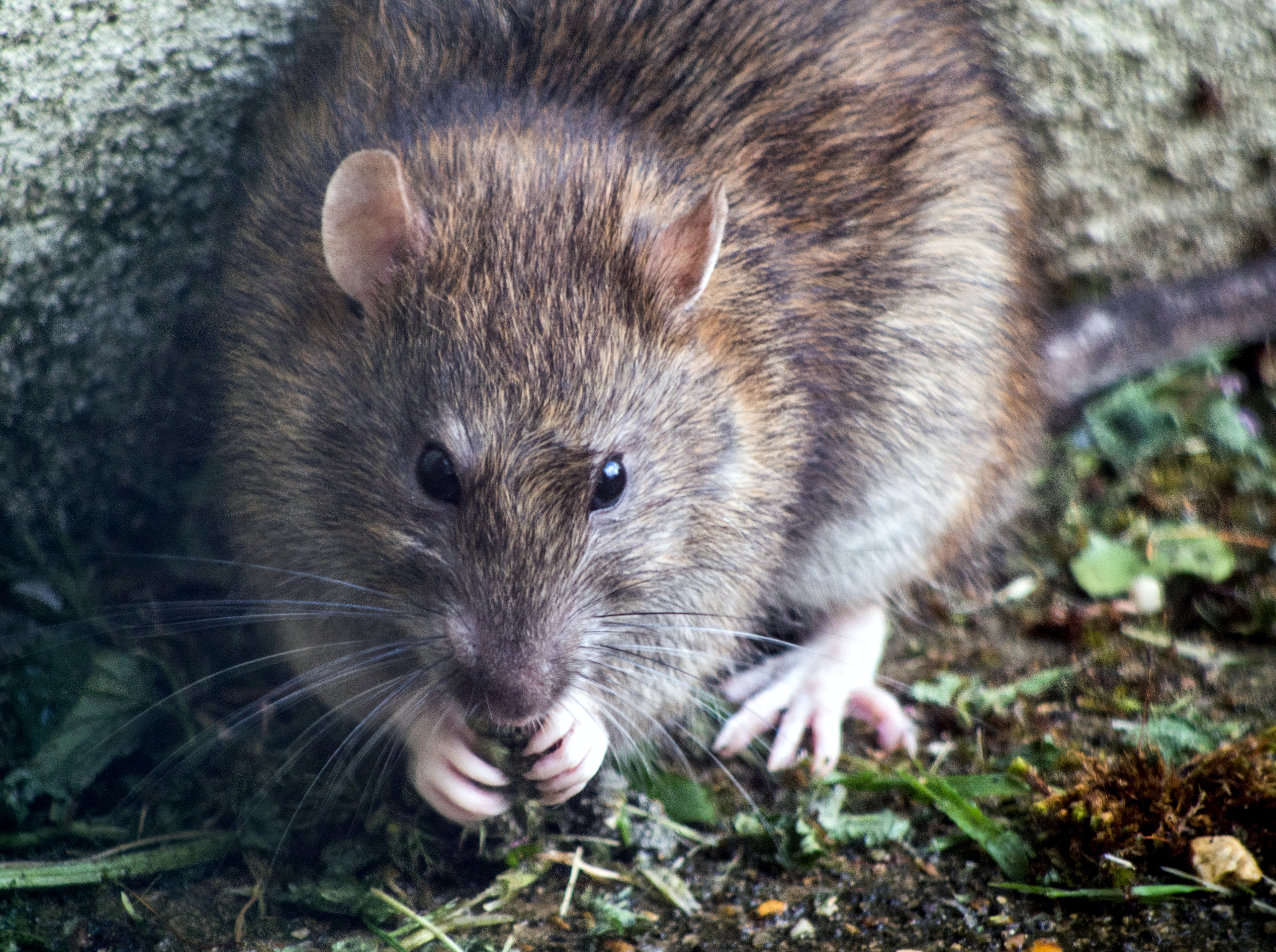How to get rid of rats – in the garden and indoors
Inevitably, finding out how to get rid of rats falls to every household. This no nonsense guide will help you get rid of them – permanently


Getting rid of rats as quickly as possible is vital. If rats find their way into your garden or, worse still, your house, they will not just gnaw through just about anything to get a meal, they also pose a health risk, spreading diseases that can affect humans and pets alike.
Banishing rats is not achieved by employing the same methods you should use to get rid of mice, so these tips will help you spot the signs that you may have an unwanted rat infestation, and tell you how to fix the problem.
After all, there's little point in investing in beautiful garden ideas if the backyard will be out of bounds because of these pesky rodents.
How to get rid of rats
The first step is prevention – just as when you want to get rid of carpenter bees and get rid of snails – and we go into that below. Then, if you spot the signs of rats – listed below – you'll need to take action, quickly. There are ways to do so with, and without, poison, although sometimes the best route is to call in the professionals.
How do I know I have a rat infestation?
Indoors, one of the signs of rats is sinister scratching noises coming from the basement, the attic, or the gap between cavity walls. Rats are likely to head indoors during the colder months. You might spot their 10mm oval-shaped droppings, similar to a large grain of brown rice. Indoors and out, rats just love to chomp their way through wood, drywall, concrete and, more dangerously, electrical wiring.
Outside, you might spot their burrows near a tasty vegetable patch – which will give you pause for thought when planning out your kitchen garden ideas – or come across a gnawed fence post.
Your cat and dog will be doing their best to alert you to the presence of rats, so if they persistently devote their attention to an area, it’s time to check it out.
Why are rats coming into my house and garden?
Despite our fears, rats aren’t out to get us. In fact, they’re shady characters, preferring to scuttle around in drains and sewers. But if their home is disturbed, for example by nearby building works or a blocked drain beneath the house, they’ll be searching for a new home and a fresh food supply. If a colony lives in a derelict house without any food, hungry rats will send out a search party for a good meal.
How to get rid of rats in the house
Let's talk about prevention first.
- Good housekeeping is a must for preventing rats.
- Never leave food out in the kitchen or elsewhere in the house.
- Seal open food packets carefully and store them in plastic containers behind the closed doors of wall cabinets.
- Choose trash cans with lids and make sure they're always on. It’s a good idea to give them a good wash with a disinfectant solution frequently.
- Never leave full trash sacks out where they’re vulnerable to rats.
- Track down any coin-sized holes or large gaps in baseboards, flooring, walls or alongside pipework, since rats can squeeze through. Block them up with a specialist mouse and rat gap sealant. Start low down, as these gaps will be the most likely entrance points.
How to get rid of rats outside
The fastest way to get rid of rats in the yard is also good housekeeping:
- Take away their food sources. Foraging rats will feast on fallen fruit, bird food and compost scraps.
- Swap the compost heap into a sealed container instead of leaving it open.
- Sweep up regularly.
- Remove their water source: water will also attract rats, so bring in pets’ bowls and fix a dripping garden tap. Although a pond and birdbath are great for encouraging wildlife, emptying these and clearing overgrown sections of the garden is advisable until the rat problem is solved.
- Seal up hiding places: the space beneath decking or a shed is a prime hidey-hole for rats, so seal these up with bricks or wire mesh, embedding this in cement.
How do I get rid of rats permanently?
You can go it alone with traps and poisons, but the safest way to get rid of rats permanently in the home and garden is to employ a professional pest-management company to put down poison.
These companies are experts regarding the habits of rats, and know the best position to place poison and traps to avoid rats dying where they’ll create a terrible stink, and to guard against children and pets coming into contact with poisons.
Rats can become immune to rodenticides, too, so the right product must be used.
How to get rid of rats without poison
There are various ways to get rid of rats without poison – some unexpected: like other animals, rats hate certain smells, so you could try to get rid of rats without poison by using these:
- Good housekeeping! Rats will only continue to return to food and water sources.
- Remove their opportunities for shelter – no home for them nearby? They'll go elsewhere.
- Balsam fir branches – lay these down because these rodents hate the scent.
- Mint and sage – probably already on your herb garden ideas – also deter rats.
- Dose cotton balls with peppermint oil wherever you’ve seen a rat – they hate the smell.
- Black pepper can be used to deter rats – sprinkle it where there are signs of them, they hate the smell.
- Humane rat traps – these will work for the odd rat, but if you have an infestation, you'll need to consider calling in the professionals.
What do rats hate the most?
Rats hate their habitat being disturbed, so shifting things around in the garden might help get rid of them if you use them alongside other natural approaches.
How to get rid of rats without harming pets or wildlife
Some of the measures you take against rats can upset friendly creatures such as pets and wildlife you want to encourage.
Don't feed pets outdoors – and if you do, remove and clean their bowls as soon as they have finished; similarly, any poison put out for rats must be out of reach of pets (and, it goes without saying, children).
For wildlife, don’t stop feeding them, but limit their mealtime to the hours before dusk, collecting up any leftovers before the time when nocturnal rats are more likely to be out and about.
Birds, too, rely on us for food, especially in winter. Choose a feeder that won’t spill seeds onto the ground and position it as high as possible.
Sign up to the Homes & Gardens newsletter
Design expertise in your inbox – from inspiring decorating ideas and beautiful celebrity homes to practical gardening advice and shopping round-ups.

Lola Houlton is a news writer for Homes & Gardens. She has been writing content for Future PLC for the past six years, in particular Homes & Gardens, Real Homes and GardeningEtc. She writes on a broad range of subjects, including practical household advice, recipe articles, and product reviews, working closely with experts in their fields to cover everything from heating to home organization through to house plants. Lola is a graduate, who completed her degree in Psychology at the University of Sussex. She has also spent some time working at the BBC.
-
 I'm 5ft2 and this telescopic scrubber safely and easily banished mold and grime in even the hardest-to-reach areas of my bathroom in less than 15 minutes
I'm 5ft2 and this telescopic scrubber safely and easily banished mold and grime in even the hardest-to-reach areas of my bathroom in less than 15 minutesMy bathroom has never looked better thanks to this handy $16 two-in-one tool from Joseph Joseph
By Ottilie Blackhall Published
-
 Everyone is obsessed with vintage tiles right now – bring the nostalgic charm of this classic design feature into your home with our 5 design ideas
Everyone is obsessed with vintage tiles right now – bring the nostalgic charm of this classic design feature into your home with our 5 design ideasHonor the past with our favorite ways to decorate with vintage tiles, as suggested by interior design experts
By Eleanor Richardson Published